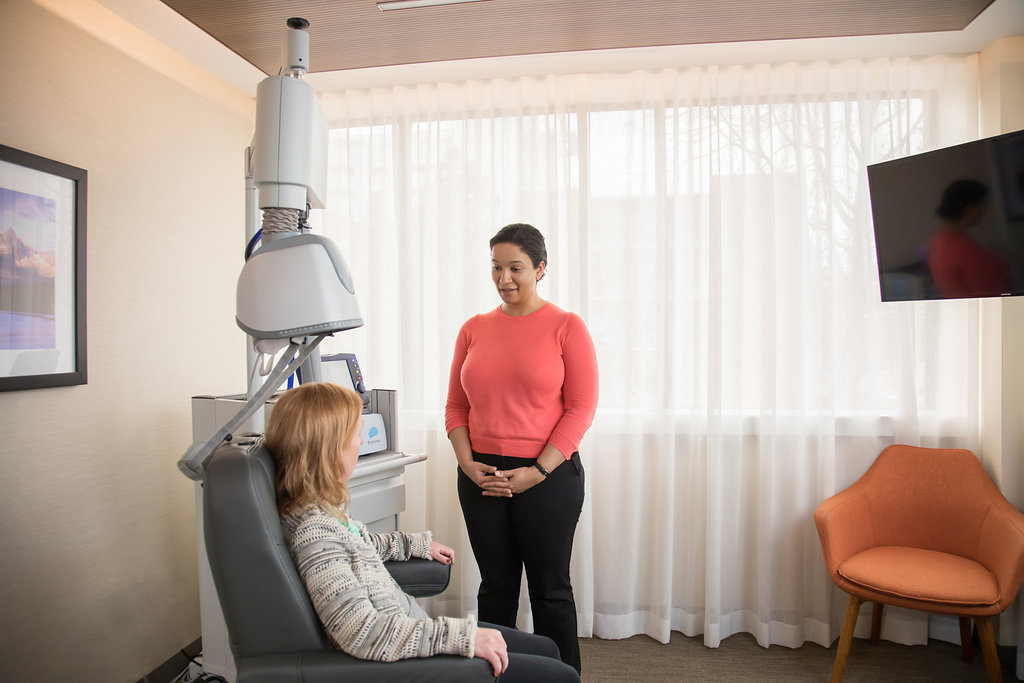Start app helps people suffering from depression identify effective medication treatments significantly faster than existing methods achieve.
The first clinical integration of a CareKit app in the mental health sector launches this week, the Startapp for depression.
Global problem, tough remedy
Start is designed to help improve management and treatment of depression. Worldwide over 350 million people suffer from depression, but despite the extent of the condition it is remarkably hard to treat.
I spoke with Thomas Goetz, cofounder and CEO of Iodine, developer of Start. (If his name sounds familiar it’s because he is the former executive editor of Wired and a published author.)
“Depression is entirely subjective,” he said. “It’s essential to help people actually process their own experience, and then to help them measure progress.”
Depression can be intermittent or chronic, occupies a wide band of negative feelings, from low self-worth to suicide ideation. Depression will impact work and family life. Moderate/severe cases are often treated with a combination of talking therapies and medication.
There is no magic cure
The problem with the medication is that while many remedies that work for some of the people some of the time exist, there are none that work with all of the people all of the time. Treatment demands a lot of trial and error, while patient suffering continues.
“Depression is often a fog to treat,” says Goetz. “Both for the patient and the doctor. Because it is experienced differently by different people, and because it takes several weeks for a new medication to take effect, it is hard for people to discern whether they’re getting better.”
This means the patient’s journey from diagnosis to something like resolution can be extensive. Reducing the time between diagnosis and identification of suitable medication is what Start, with CareKit, aims to achieve.
How Start helps
Start patients are equipped to track their progress with antidepressants and fax regular progress reports to their doctors, all from within the app. The app is being clinically integrated with Mindful Health Solutions, which uses the information to more accurately monitor the effect of antidepressants in their patients.
This is more than an administrative exercise, Goetz explains. “Start works for people because it’s more than just a mood tracker or a pill reminder. People share their experience, and then that experience is synthesized into a Progress Report, which shows a very clear map of their progress (or lack of progress) every two weeks. It turns out this report is powerful, both because it measures depression severity on a clinical scale (the PHQ-9 survey score), but also because it visualizes progress on what matters to the individual.”
To help sufferers feel less alienated inside their condition the app also provides tips and shared experiences from carers and sufferers. “We’ve found our users are hungry for understanding how their personal experience maps against that of others with depression, and that this guidance helps keep people working to get better,” Goetz explains.
Good response so far
The evidence seems promising. The company claims that after six weeks, 46 percent of Start users report that they’re responding well to their treatment, compared to 33 percent of antidepressant users who do not use the app. After four weeks, Start users see an average improvement in their depression scores of nearly 6 points on the 27-point PHQ-9 scale.
“The most tangible benefit we see is that we help people find what works, faster,” Goetz said. The app means patients respond to medication at higher rates than usual, and switch from medication that is not working faster than in usual care. “About a month on average, for users of our app, compared to about 3 months in usual care,” he said.
What this means in real terms is that people get to find the treatment that works for them faster, helping them carve a little autonomous space within the cloud of depression. “Given that the typical antidepressant is only effective for about 1/3 of people, helping people move along faster is a real need,” he said.
On CareKit and digital health
Goetz had a lot of praise for Apple’s CareKit, calling it “terrific” for making developers think about the user experience connection in the patient/doctor relationship. “It really created an intuitive framework for connecting patient-reported data to the clinical care setting,” he said.
One weak point, at least in the current implementation of CareKit, is a lack of integration with the doctor’s office – it doesn’t (yet) plumb into caregiver’s systems. To get around this Start integrates electronic faxing to send progress reports to physicians in the PDF format. Doctor’s can then port this into their own EHR (Electronic Health Records) system.
How does Goetz see such remote monitoring within future medical care? “We think finding ways to efficiently measure real world experience, using technology to make it cheaper and easier to understand the patient experience, is a huge opportunity,” he said. “We think that Iodine is helping bridge this divide by more effectively connecting people to their care providers.”
If you or someone you know may be suffering from depression, the WHO provides a useful factsheet here. The US National Association on Mental Illness provides some helpful support information here.

